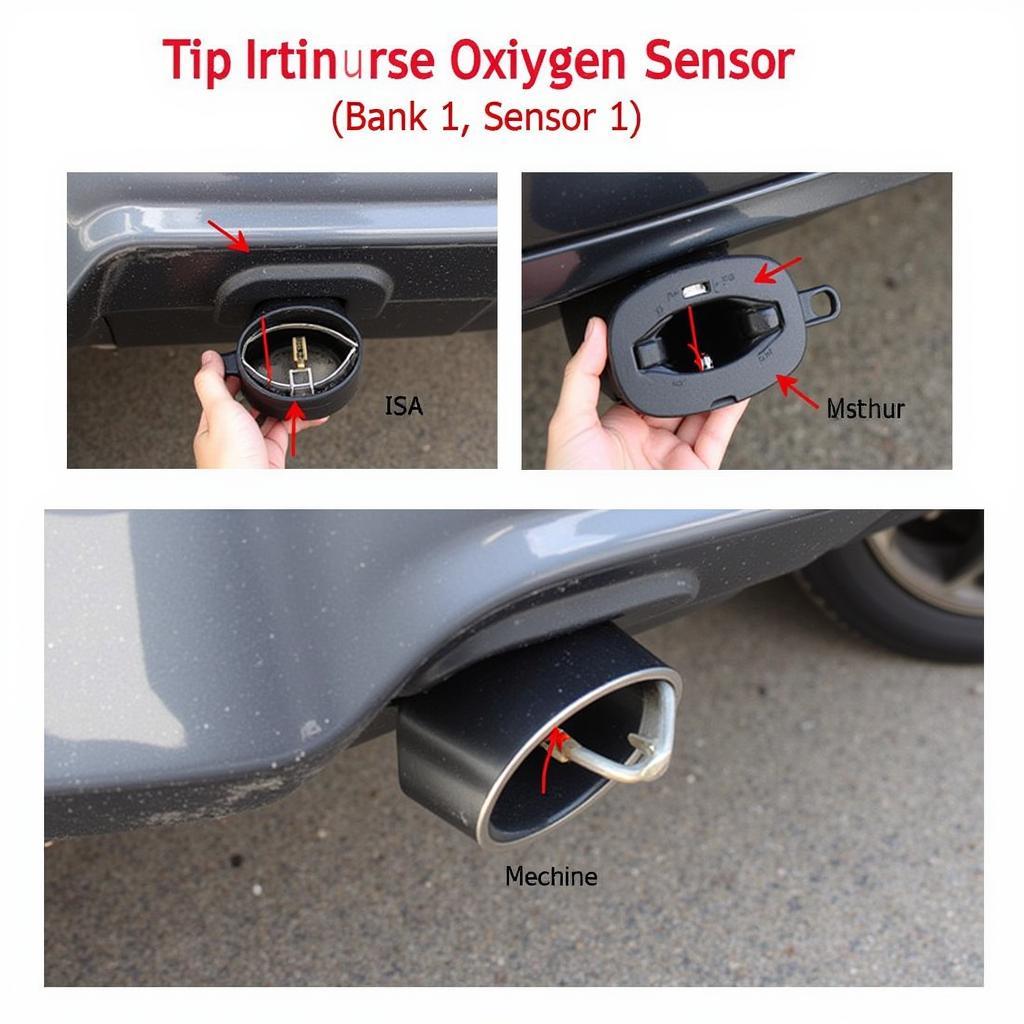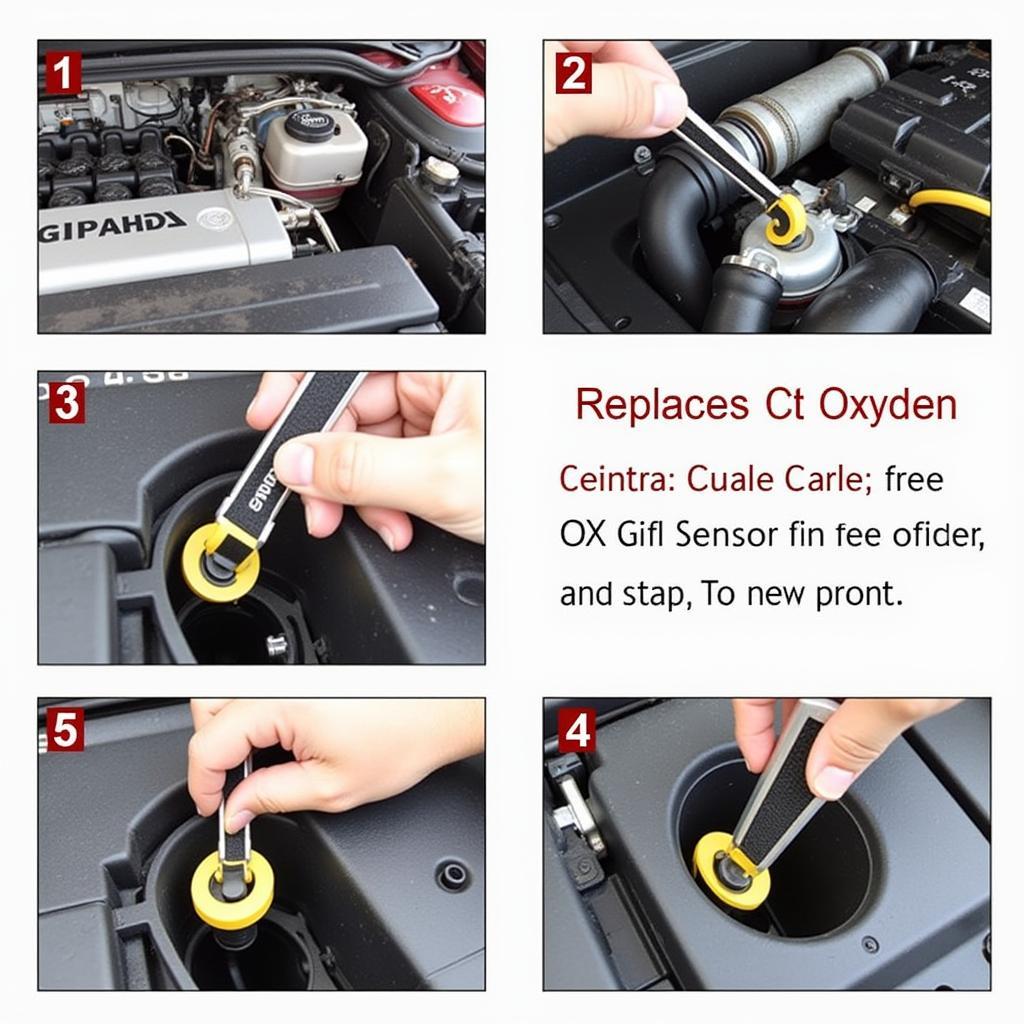Your cart is currently empty!

Understanding and Fixing VW Golf Fault Code 01325: An In-Depth Guide
The VW Golf fault code 01325 can be a frustrating issue for any car owner. This code indicates a problem with the oxygen sensor (O2 sensor) in your vehicle, specifically Bank 1 Sensor 1. This sensor plays a crucial role in monitoring the exhaust gases and ensuring optimal engine performance and fuel efficiency.
What Does VW Golf Fault Code 01325 Mean?
The 01325 fault code specifically points to a problem with the oxygen sensor located before the catalytic converter on engine bank 1 (typically the side with cylinder #1). This sensor measures the oxygen content in the exhaust gases, which helps the engine control unit (ECU) adjust the air-fuel mixture for optimal combustion.
Causes of VW Golf Fault Code 01325
Several factors can trigger the 01325 fault code in your VW Golf. These include:
- Faulty oxygen sensor: The most common culprit is a malfunctioning oxygen sensor that needs replacement.
- Wiring issues: Damaged, corroded, or loose wiring connections between the sensor and the ECU can disrupt signal transmission.
- Exhaust leaks: Leaks in the exhaust manifold, downpipe, or other components before the oxygen sensor can alter the oxygen readings.
- Vacuum leaks: Leaks in the intake manifold or vacuum hoses can affect the air-fuel mixture, impacting the oxygen sensor readings.
- Faulty fuel system components: Issues with the fuel injectors, fuel pressure regulator, or fuel pump can disrupt the air-fuel ratio, leading to inaccurate oxygen sensor readings.
Symptoms of a Faulty Oxygen Sensor
Identifying a faulty oxygen sensor early can save you from potential engine damage and costly repairs. Common symptoms include:
- Check Engine Light: The most obvious sign is the illumination of the check engine light on your dashboard.
- Reduced fuel economy: A malfunctioning oxygen sensor can cause your engine to run rich (too much fuel), significantly impacting your fuel mileage.
- Poor engine performance: You might experience rough idling, hesitation during acceleration, or decreased engine power.
- Failed emissions test: A faulty oxygen sensor can hinder your car’s ability to pass emissions tests.
Diagnosing VW Golf Fault Code 01325
Before replacing the oxygen sensor, it’s essential to diagnose the problem accurately. Here’s a step-by-step guide:
- Read the fault code: Use an OBD-II scanner to retrieve the specific fault codes stored in your car’s ECU.
- Inspect the wiring and connections: Visually examine the wiring harness and connections leading to the oxygen sensor for any signs of damage, corrosion, or looseness.
- Check for exhaust leaks: Inspect the exhaust system for any noticeable leaks, particularly around the manifold and downpipe.
- Test the oxygen sensor: Use a multimeter to check the sensor’s voltage output and resistance. Compare the readings with the manufacturer’s specifications.
 VW Golf Oxygen Sensor Location
VW Golf Oxygen Sensor Location
Fixing VW Golf Fault Code 01325
Once you’ve diagnosed the cause of the 01325 fault code, you can proceed with the appropriate repair:
- Replace the oxygen sensor: If the sensor is faulty, replacing it with a new OEM or high-quality aftermarket sensor is recommended.
- Repair wiring issues: Repair or replace any damaged, corroded, or loose wiring connections.
- Fix exhaust leaks: Address any exhaust leaks by tightening connections, replacing gaskets, or repairing damaged components.
- Address vacuum leaks: Identify and repair any vacuum leaks in the intake manifold or vacuum hoses.
- Repair or replace faulty fuel system components: Depending on the diagnosed issue, repair or replace faulty fuel injectors, fuel pressure regulator, or fuel pump.
 Replacing VW Golf Oxygen Sensor
Replacing VW Golf Oxygen Sensor
Expert Insight:
“When replacing an oxygen sensor, it’s crucial to use the correct part number specified for your specific VW Golf model and year,” advises Mark Stevenson, a seasoned automotive electrical engineer. “Using the wrong sensor can lead to inaccurate readings and affect engine performance.”
Preventing Future Oxygen Sensor Issues
While some causes of oxygen sensor failure are unavoidable due to wear and tear, you can take proactive measures to prolong the lifespan of your oxygen sensor:
- Regular maintenance: Adhere to your VW Golf’s recommended maintenance schedule, including regular oil changes and tune-ups.
- Use high-quality fuel: Using good quality fuel can prevent the buildup of deposits that can damage the oxygen sensor.
- Address engine issues promptly: Ignoring engine problems like misfires or oil leaks can put extra stress on the oxygen sensor, leading to premature failure.
Conclusion
The VW Golf fault code 01325, while a common issue, should not be ignored. Addressing this code promptly can help prevent further engine damage and maintain optimal vehicle performance and fuel efficiency. By understanding the causes, symptoms, and solutions outlined in this guide, you can confidently tackle this fault code and get your VW Golf back on the road running smoothly.
Need further assistance with your VW Golf fault code 01325? Our team of expert technicians at VCDSTool is ready to help! Contact us at +1 (641) 206-8880 and our email address: vcdstool@gmail.com or visit our office at 6719 W 70th Ave, Arvada, CO 80003, USA.
FAQs:
1. Can I drive my VW Golf with the 01325 fault code?
While you might be able to drive for a short distance, it’s not recommended. Driving with a faulty oxygen sensor can lead to decreased fuel economy, engine damage, and failed emissions tests.
2. How much does it cost to replace an oxygen sensor on a VW Golf?
The cost can vary depending on the model year, labor costs, and whether you choose an OEM or aftermarket sensor. On average, you can expect to pay between $200 and $400 for parts and labor.
3. How often should I replace my oxygen sensor?
Oxygen sensors typically last between 60,000 and 90,000 miles. However, following your VW Golf’s recommended maintenance schedule is best to ensure timely replacement.
4. Can other problems trigger the 01325 fault code?
Yes, while a faulty oxygen sensor is the most common cause, other issues like vacuum leaks, exhaust leaks, or problems with the fuel system can also trigger this code.
5. How can I prevent future oxygen sensor problems?
Regular maintenance, using high-quality fuel, and addressing engine issues promptly can significantly prolong the lifespan of your oxygen sensor.
by
Tags:
Leave a Reply